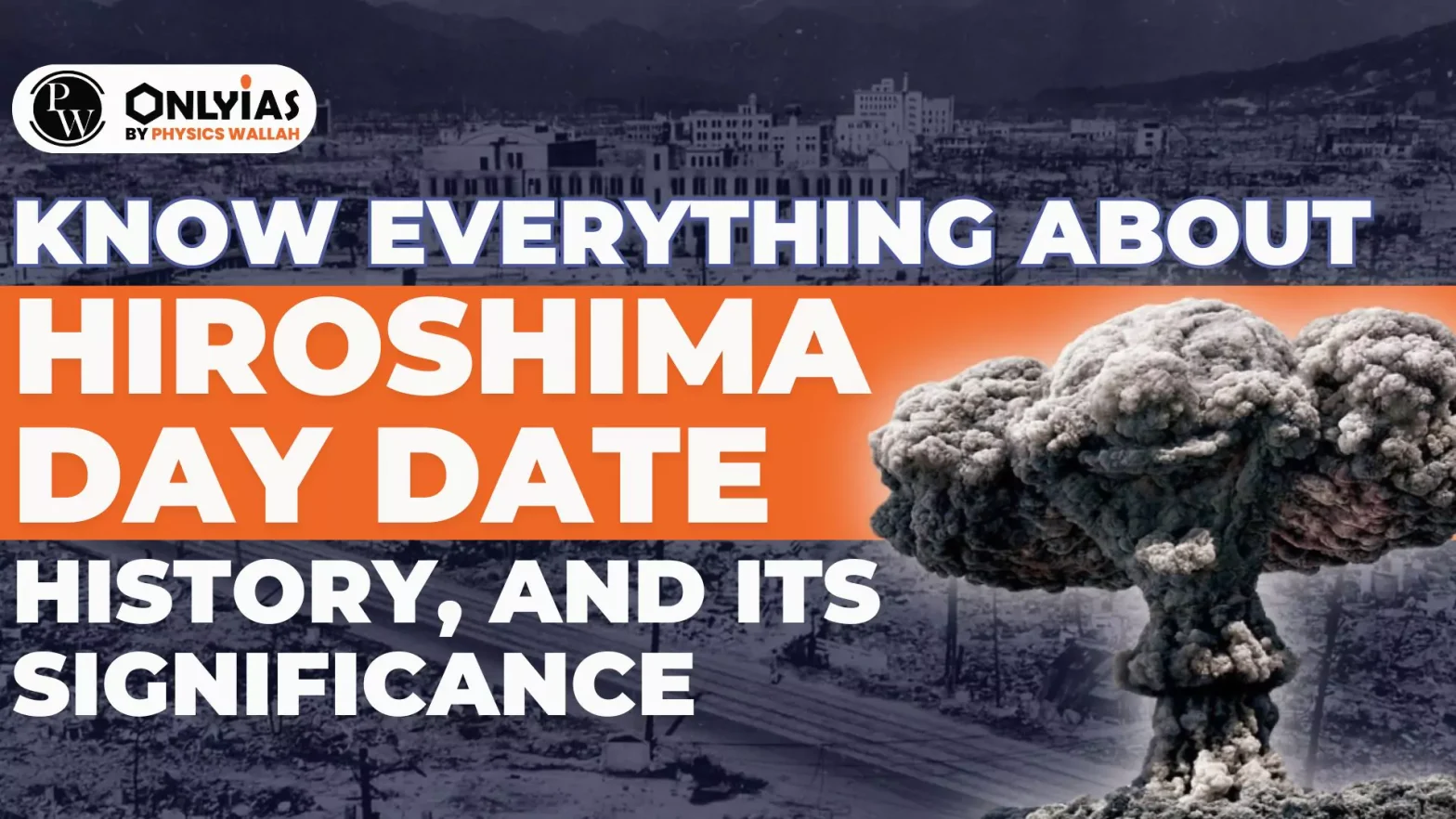Hiroshima Day 2025 marks the 80th anniversary of the atomic bombing of Hiroshima on 6th August 1945. It serves as a powerful reminder of the devastating impact of nuclear warfare. The 80th year of Hiroshima Day brings global peace events, memorial ceremonies, and renewed focus on nuclear non-proliferation.

Hiroshima Day is observed annually on the 6th of August to mark the tragic atomic bombing of Hiroshima, Japan, during World War 2. This day marks the solemn reminder of the devastating impact of nuclear warfare and also reinforces the global commitments to peace, disarmament, and humanitarian values.
Observing this Hiroshima Day 2025 is not just a tribute to the lost lives but also an occasion to reflect on the lasting consequences of the atomic bombings and the urgent need for nuclear non-proliferation. In the year 2025, it holds even greater significance on the calendar as it marks the 80th anniversary of the Hiroshima and Nagasaki bombings. Recognizing these most catastrophic events in human history is to advocate for a world free from the threat of nuclear weapons.
Hiroshima Day 2025 is the 80th anniversary of the atomic bombing of Hiroshima, which occurred on 6th August 1945. It was on this day that the United States of America dropped the first-ever stomach bomb during the warfare named “Little Boy”. This bomb was dropped on the city of Hiroshima, causing massive destruction and loss of life.
Hiroshima Day is one of the saddest days to mourn the loss of innocent lives. It marks the loss of the lives of thousands of innocent civilians who died due to the bombing and those who later succumbed to injuries. The drastic event has left its mark over the years, leaving behind huge radiation sickness and long-term health effects.
In Japan, the Peace Memorial Ceremony is held every year at Hiroshima Peace Park. It is here that the names of the deceased are added to the Memorial Cenotaph. And the peace declarations are delivered by the Mayor of Hiroshima.
List Of International National Days 2025 Month-Wise List
The atomic bombings of Hiroshima and Nagasaki were the final blows for World War 2. This war lasted from 1939 to 1945 and involved most of the nations. By 1945, the Allied nations had driven Axis troops back. In the Pacific, Japan was the sole significant Axis power that had not surrendered. It was after this event that the United States, in order to bring a swift end to the war and to avoid any prolonged land invasion, Japan chose to take this catastrophic action.
The decision to use atomic bombs has remained a point of intense ethical, political, and historical debate. It altered the nature of global conflict, introduced the nuclear age, and shifted post-war geopolitical dynamics. Hiroshima Day 2025, therefore, is not just a remembrance of a tragic event but also a reflection on the lasting consequences of World War 2 and nuclear warfare.
It was on the fateful day of 6th August 1945, the U.S. dropped the atomic bomb “Little Boy” on Hiroshima. Then three days later, on 9th August, a second bomb, “Fat Man”, was dropped on Nagasaki. Together, these bombings marked the first and only use of nuclear weapons in warfare. This incident caused an immediate impact, resulting in huge catastrophic events.
The effect of this bombing was so far beyond the physical destruction. Survivors known as Hibakusha suffered lifelong health issues, including cancers, birth defects, and psychological trauma. It this till date that the stories of this incident remain central to Hiroshima Day observances. Thereby plays a crucial role in educating future generations about the horrors of nuclear war.
The death toll from the atomic bombings remains one of the most tragic consequences of World War 2. Estimates vary, but the widely accepted figures include both immediate and long-term fatalities. Here is an approximate toll of Hiroshima and Nagasaki tragedy:
| How Many Died in Hiroshima and Nagasaki | |||
| City | Date of Bombing | Immediate Deaths | Total Estimated Deaths (By End of 1945) |
| Hiroshima | 6th August 1945 | 70,000 – 80,000 | Over 140,000 |
| Nagasaki | 9th August 1945 | 40,000 – 45,000 | Over 75,000 |
Hiroshima Day 2025 marks the 80th Anniversary of Hiroshima and Nagasaki, one of the darkest events in the world and human history. This year holds a deep emotional and historical resonance for Japan and the global community. To mark this day, a series of international events, exhibitions, documentaries, peace marches, and interfaith services are being organised. Mentioned here are the key highlights from the 80th Anniversary of Hiroshima and Nagasaki:
Ready to boost your UPSC 2026 preparation? Join PW’s UPSC online courses today!
Hiroshima Day is observed on 6th August every year to commemorate the atomic bombing of Hiroshima in 1945 and promote peace and nuclear disarmament.
Hiroshima Day 2025 marks the 80th anniversary of the Hiroshima bombing, encouraging reflection on the consequences of nuclear war and strengthening calls for peace.
On 6th and 9th August 1945, the United States dropped atomic bombs on Hiroshima and Nagasaki, killing over 2,00,000 people combined and bringing an end to World War 2.
While 6th August is officially recognised as Hiroshima Day, both bombings are often jointly commemorated under Hiroshima Nagasaki Day by peace activists and organisations.
Over 2,00,000 people died in Hiroshima and Nagasaki combined due to the atomic bombings and their aftermath by the end of 1945.
<div class="new-fform">
</div>